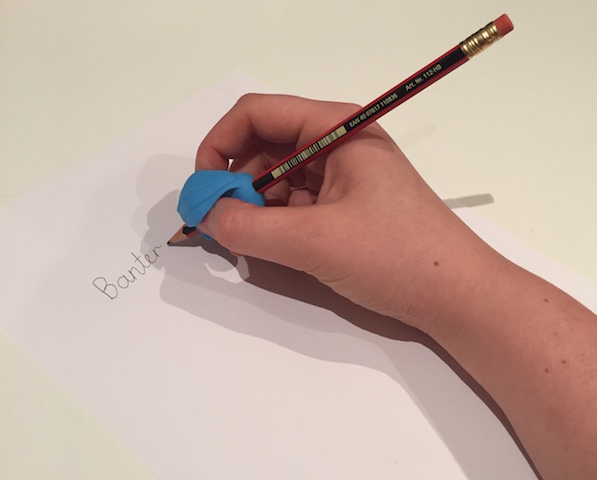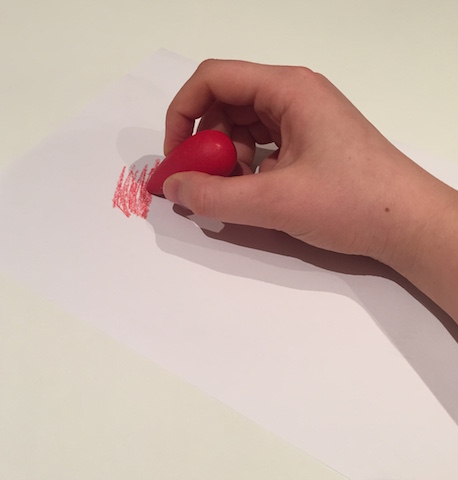Speech pathologists aren’t handwriting experts. For the mechanics of how to form letters, we defer to our friends, the Occupational Therapists. But, these days, lots of clients are coming into our clinic with little or no idea about how to hold a pencil.
For kids with language or reading problems, poor pencil grip and handwriting can be yet another thing getting in the way of their success.
Fortunately, one of our Speech Pathologists, Georgia Clarke, is also an Occupational Therapist. So I asked Georgia to pull together this article to help all of us non-experts help our kids with their pencil grips.
Over to you Georgia:
________________________________
As with skinning a cat, there are many ways to hold a pencil. Don’t expect your child to magically hold the pencil perfectly when they start. A child’s pencil grasp will usually develop into a mature grasp at around the age of 4-5 years old.
Ideally:
- you want your child to develop what’s called a “dynamic tripod grasp”. This means using three fingers to move and control the pencil; and
- right from the start, encourage your child to use their fingertips to move the pencil rather than using their whole arm or wrist.
How?
Here are some ways to help your child with pencil grasp:
1. Use a story to remember where your child’s fingers go
Imagine a family in a car.
- First, decide who drives the car (e.g. mum, dad, auntie). They can be the index finger.
- Your thumb is the person that gets to sit in the front seat (e.g. sister, mum, dad or a ninja turtle).
- The “child” gets to sit in the back (middle finger) and rests on the side of the pencil giving directions from the backseat!
- The last two fingers can be other siblings or a schoolbag that get tucked away.

Another way to talk about pencil grips is using a ‘circle pinch then flick’. This is where your child uses a ‘circle pinch’ to pick up the pencil from the table near the tip. Then they flick the pencil back so it rests on their hand.

2. Use visuals to help with finger placement
Pop a sticker on the pencil where the thumb should go. Then play games (e.g. o’s and x’s, spelling words, mazes) to practice keeping your child’s finger stuck to the sticker for the whole activity. You can time how long your child can keep their finger there and try to beat it next time.
Pencil grips may also help by providing a visual reminder of where the fingers should go. Picking the right one can be tricky and they require some trial and error. Putting a pencil grip on a pencil doesn’t always fix the problem. Sometimes we see children ignoring it completely and wrapping their fingers over it or hating it and pulling it off.

3. Use short and thick pencils or crayons
Using short crayons means your child has no choice but to use the tips of their fingers to move the pencil. Thicker pencils, textas and crayons can make it easier to control and mean your child can be more precise with their movements.

Other reasons may be interfering with your child’s pencil grasp development. If you have tried some of these things and your child is still having trouble you may benefit from some extra support from an Occupational Therapist.
Image: https://tinyurl.com/y7pbr9xk

Hi there, I’m David Kinnane.
Principal Speech Pathologist, Banter Speech & Language
Our talented team of certified practising speech pathologists provide unhurried, personalised and evidence-based speech pathology care to children and adults in the Inner West of Sydney and beyond, both in our clinic and via telehealth.


Leave a Reply